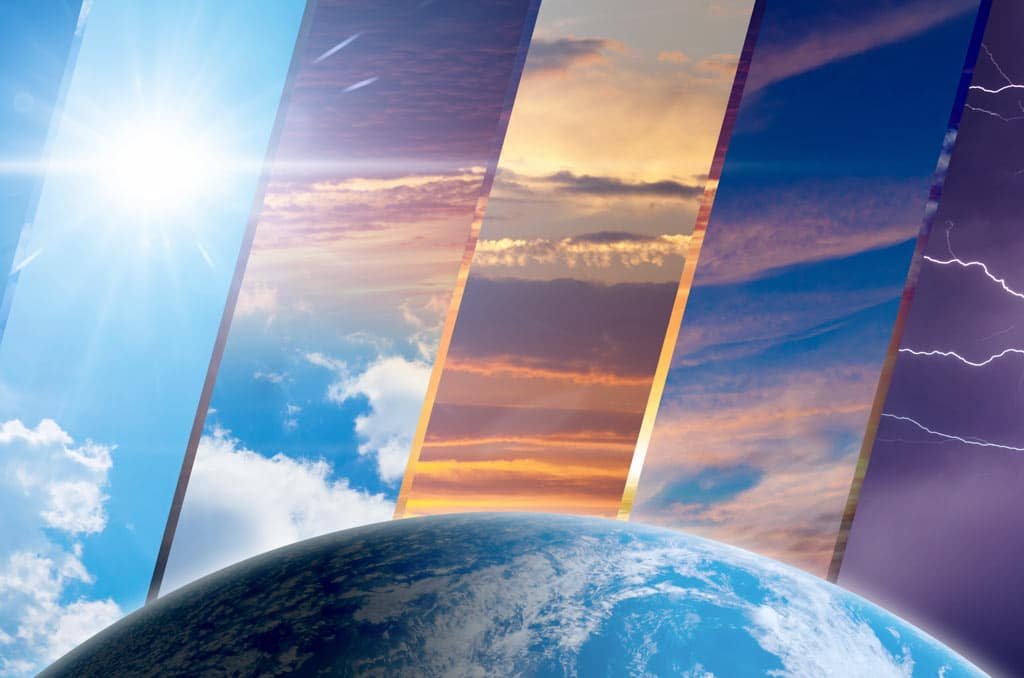What is the link between human rights and climate change?
How does climate change affect human rights in practice?
Human rights and climate change are two currently hot topics, but how do they relate to each other? In practice, people are increasingly confronted with climate change as a visible phenomenon. Examples in this context are extreme weather conditions such as heavier storms and prolonged heat, which causes forest fires, floods or persistent drought in various parts of the world. Such natural disasters as a result of climate change, in turn, have negative effects on people’s living conditions and health, sometimes up to humanitarian disasters. This means that in those situations people are practically unable to exercise certain basic rights (anymore). In concrete terms, this can include:
- The right to life. For example, the extreme drought has more than once caused crops to fail or people in certain areas are no longer able to grow food at all, with all the consequences that entails. In this context, a risk of malnutrition or disease has not only endangered people’s health but has even taken their lives away.
- The right to an adequate standard of living. In this case, for example, one could think of several floods that have wiped out entire villages by now, so that the people living there no longer had access to water, shelter, electricity and sanitation at all. Let alone shelter, so that people were simply forced to flee.
- The right to education and development. But education and thus development is also at stake in a similar way due to the visible phenomenon of climate change. Moreover, for those who already found themselves in difficult circumstances, it further increases poverty. At some point, they too will feel compelled to leave their home in the hope of being able to enjoy this right elsewhere.
In view of the foregoing, climate change clearly also implies a practical limitation of human rights. In this sense, these two current topics are increasingly linked to each other. Because of such profound impacts of climate change on human rights, Amnesty International, together with Greenpeace and the United Nations, among others, even organized a global meeting in 2019 called “People’s Summit on Climate, Rights and Human Survival”. This was the first meeting where people spoke on such a large scale about the link between climate change and human rights, or at least its consequences.
What does the law say about the link between human rights and climate change?
In 1992, a legal link was also carefully established between human rights and climate. In this sense, the Rio de Janeiro Declaration on Environment and Development placed the people, but not in so many words, “at the centre of concerns for sustainable development” and stated that people have the right to a healthy and productive life in harmony with nature. However, a clear link was delayed until 2015. Only in the globally binding Paris Climate Agreement was a direct reference to human rights established. More specifically, paragraph 11 states that, in the context of climate change, the parties to this agreement “have their respective obligations regarding human rights, the right to health, the rights of indigenous peoples, local communities, migrants, children, persons with disabilities and people in vulnerable situations, and have to respect, promote and take into account the right to development, gender equality, women’s empowerment and intergenerational solidarity.” In principle, this agreement only applies to states. After all, they are the party to this agreement. Moreover, human rights were primarily developed for their governments that must respect and monitor human rights.
However, that does not mean that national companies can pass such international human rights standards in the context of climate change. After all, for them there are international frameworks that include guidelines on how companies should deal with human rights in their business operations, which will also be used by national courts to implement social due diligence. The most important general frameworks can be found in the United Nations Guiding Principles on Business and Human Rights (UNGP). For example, according to the UNGP, companies must also respect human rights, in the sense that where they can cause human rights violations by contributing to them, for example by not pursuing an appropriate climate policy, companies should avoid them. To this end, companies must, for example, establish a process, also known as human rights due diligence, to identify, prevent and mitigate human rights violations. The same applies to the procedures that provide remedies for human rights violations, such as the way in which climate policy will be adjusted.
Moreover, the legal link between human rights and climate has been further strengthened to this date. An important step in this regard has been taken with the ‘Report of the Special Rapporteur on the issue of human rights obligations with regard to the enjoyment of a safe, clean, healthy and sustainable environment’, which advocates the recognition of the right to life, health, food, water, housing, culture, development, property and home, and private life as a general human right to a clean environment by the UN. The idea behind this is that a legal enactment of this right not only yields the fact that this right must be universally protected, but also straighten the measures that many states already adhere being an entrepreneur through stricter environmental laws and policies, improved implementation and enforcement, less environmental injustice. At the moment, however, the report is yet submitted to the UN General Assembly and still has to be reviewed. Would you like to stay informed about this development? Then keep an eye on our blog!
What angle does jurisprudence take in the field of human rights and climate change?
The link between climate change and human rights also emerges clearly in case law, albeit trough a different route. One of the well-known examples in this context is the Urgenda case. This was the first case in Europe in which an NGO (St. Urgenda) and 886 citizens sued the government about the dangerous consequences of climate change and stated that the government has a duty of care and should therefore take action to protect citizens and their human rights. In concrete terms, Urgenda argues in its summons together with the citizens that the current Dutch CO2 reduction policy will lead to insufficient reduction in 2020 and will therefore result in a violation of Article 2 ECHR and Article 8 ECHR. According to the court, given the human rights enshrined in these articles, there was a positive obligation to protect the lives of civilians within its jurisdiction and to protect the right to home and private life. And now that the human rights of this and future generations are increasingly being jeopardized by climate change on the basis of scientific reports and experts, it is up to the state to take measures such as setting a more ambitious CO2 reduction target in this case. This judgment of the Court was allowed by the Supreme Court on 20 September 2019.
With this judgment of the Court, the first step has globally been taken towards the link whereby climate change leads to a legal violation of human rights. If the government fails to implement decisive climate policy, it could well be that it leads to violations of the human rights of its citizens, as well as to measures to bring climate policy in line with those human rights. Companies may soon also be faced with a similar judgment. For example, Dutch citizens recently filed a similar lawsuit against Shell demanding that this company bring its business plans in line with the Paris Climate Agreement or adjust its business plans. After all, according to the plaintiffs, Shell’s activities would not only cause climate damage, but also endanger society and again, human rights. We will keep an eye on what the judge thinks in this case regarding the link between human rights and climate change.
Do you have any other questions regarding this blog? Then contact Law & More. Our lawyers are experts in the field of human rights and climate law and are happy to help you!





